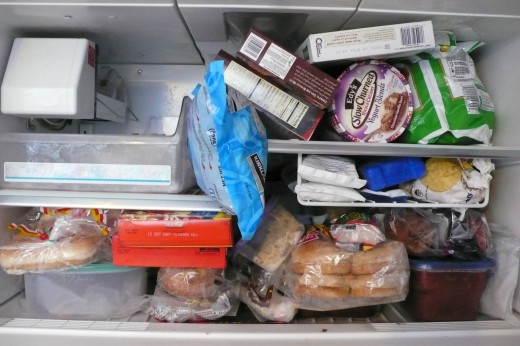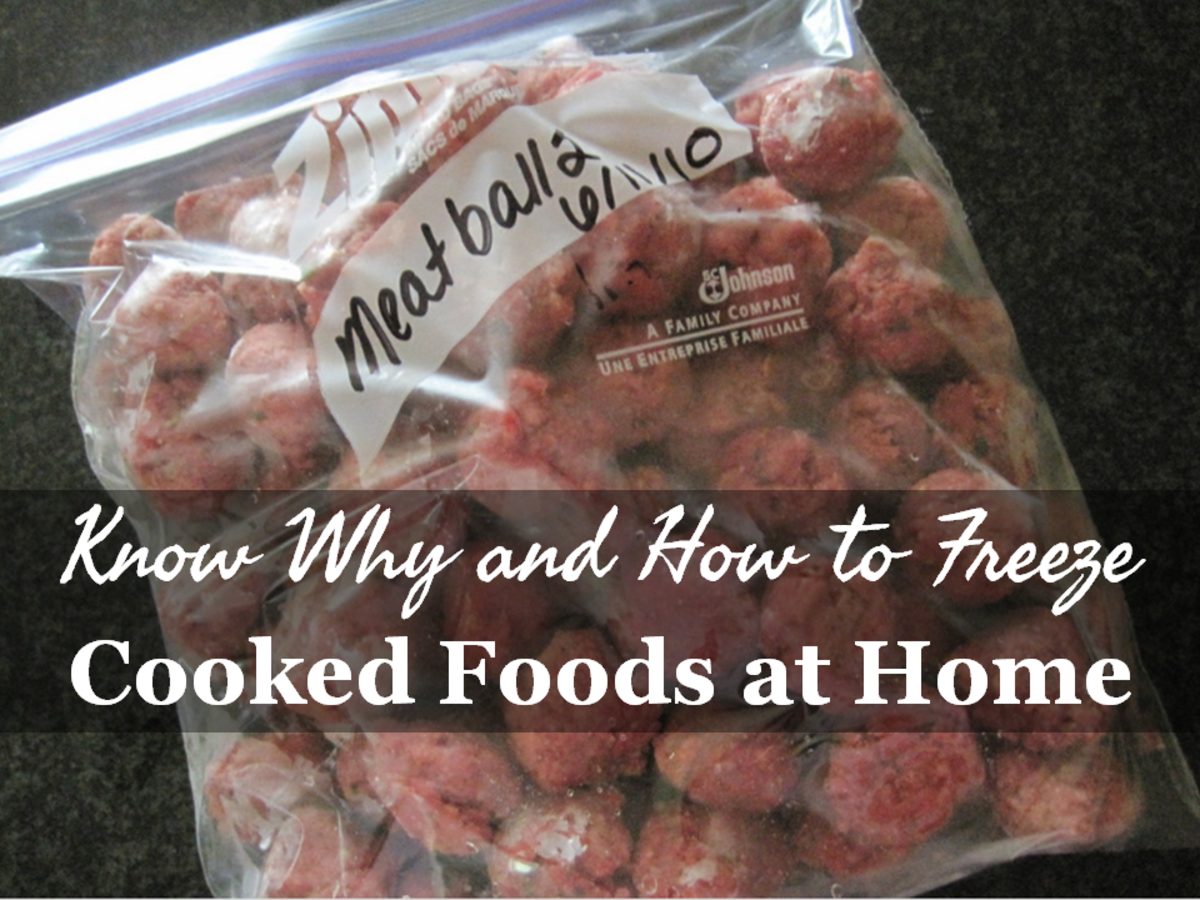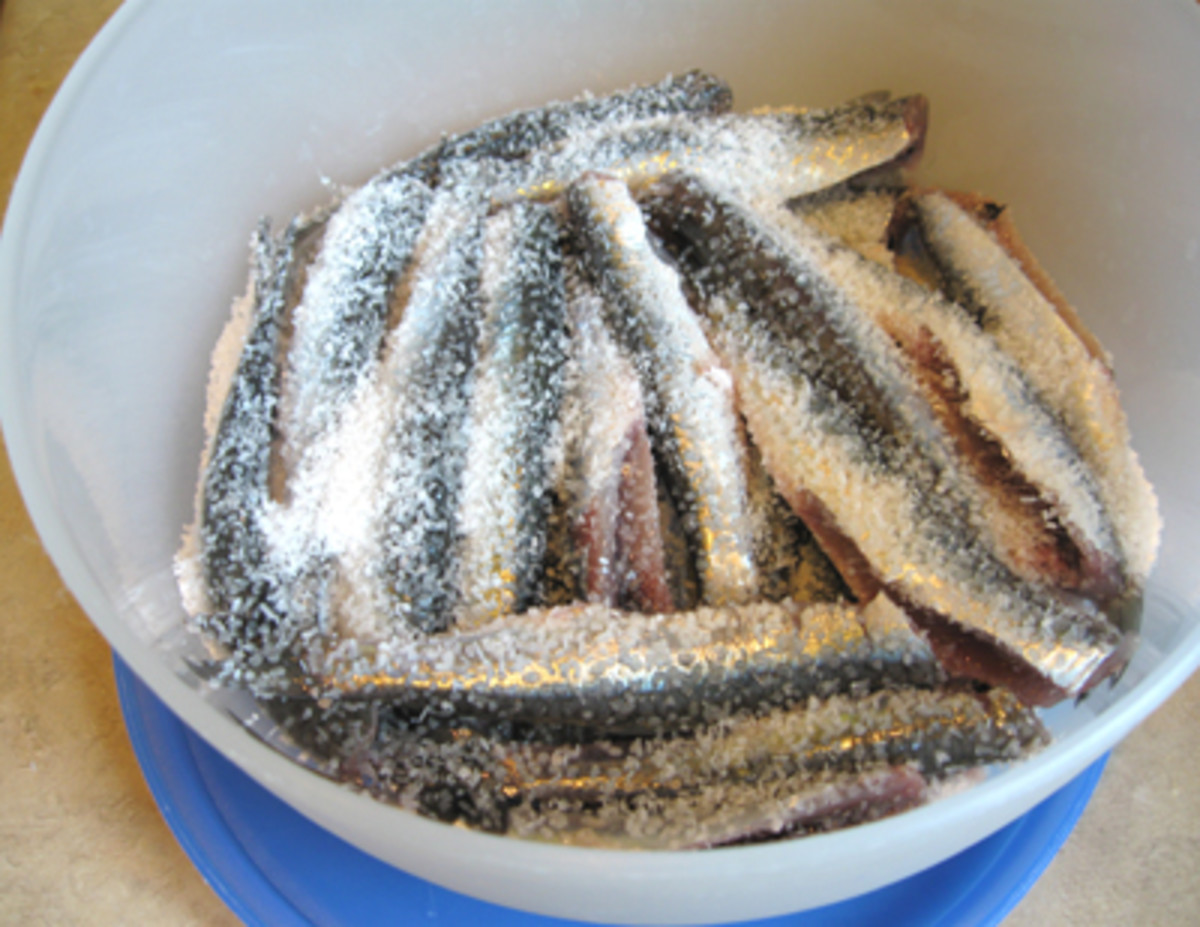Frozen Foods: How Long They Last in the Freezer
Freezer Patrol
I have found myself standing in front of my freezer many times asking myself the following questions:
- Non-labeled packages: I wonder how long this has been in here. The coloring looks questionable but maybe it is still good.
- Labeled packages: This has been in here for more than six months. I wonder if it is still safe to eat.
- Identifiable food: Does chocolate go bad?
- Non-identifiable food: What the !@#$ is this and how long has it been in here?
If these packages and foods were in the refrigerator, I simply use my sense of smell to figure out if something is still good or not. For instance, it's pretty obvious when milk has gone bad. Visually, you can see that it has curdled, and through your olfactory nerve, you'll discover that you don't want to ingest it at all...the smell of spoiled milk could make you double-over in disgust.

In order to help out the situation, I've decided to research the topic and share what I have found to be the norm of how long food is stored in the freezer. Unlike refrigerated items, frozen foods don't give off odors so it is hard to use the smell test to figure out if it is still healthy to consume. Therefore, resorting to dating and organizing the food in your freezer is the best way to determine whether or not it is still safe to consume or if you should just realize your losses and toss the spoiled grub. The simple act of labeling your food and dating the package will save you a lot of heartache as you try to determine what to have for your next meal.
It is safe to eat frozen foods as long as they are stored below 0°F. The only thing that would suffer is the quality of the food, the longer it is stored. The freezing of food slows down the movement of molecules, resulting in microbes entering a dormant phase. Placing foods in freezers help preserve them from spoiling. If you know that you will have to freeze something for later consumption, stick it in the freezer sooner than later to "seal in the freshness."
What Foods Freeze Well?
Pretty much, you can freeze just about any food you want to save. Stay clear of freezing canned food or eggs in their shells. I am referring to canned food that is still in the can. Once the food is removed from the can, feel free to freeze it without concern. Some foods, however, historically do not freeze well. They include:
- cream sauce,
- mayonnaise, and
- lettuce.
If you decide you want to freeze meat or poultry, you will experience better results if you put them in the freezer raw rather than cooked. The meat and poultry will maintain a fresher taste and remain juicier for later cooking.
Packing Food For The Freezer
Food Packaging
Packing up your food so that it is "freezer ready" takes some preparation if you want your food to stay fresh. If you are freezing meat or poultry, remove them from their original packing. The original packing material is permeable to air which will affect overall quality over time. There is no "over-wrapping" of meat and poultry as you prepare them for freezer life.
If you notice freezer burn or a change in your food's coloring, have no fear. Neither of them are indications that the food has gone bad. The food does not become unsafe to eat due to these two phenomena. If you don't like the taste of freezer-burned food, simply cut off the affected areas and cook as you normally would.

A Quick Note About Eggs
Shelled eggs should not be frozen at all. If an egg does end up in the freezer and the shell is cracked at all, discard the egg. It is not safe to consume! If you accidentally freeze an uncracked, shelled egg, leave them frozen until you need them and thaw them out in the refrigerator. These particular eggs can be used if you need hard boiled eggs, but wouldn't be good for any other style of eggs. The process of freezing the egg makes the yolk thick and syrupy so it will not flow like an unfrozen egg, making it difficult to scramble or blend with anything else well.
How Long Should Food Be Frozen?
Food Item
| Freezer Duration at 0 degrees F.
|
|---|---|
cooked bacon or sausage
| 1 to 2 months
|
cooked ham, hotdogs, and lunch meats
| 1 to 2 months
|
cooked hamburger
| 3 to 4 months
|
cooked meat casseroles
| 3 months
|
cooked fish
| 4 to 6 months
|
cooked shrimp
| 3 months
|
cooked soups and stews
| 2 to 3 months
|
cooked poultry
| 4 months
|
raw meat (roasts, steaks, chops)
| 4 to 12 months
|
raw poultry
| 9 months
|
raw fish
| 6 months
|
raw shrimp
| 3 to 6 months
|
gravy
| 2 to 3 months
|
butter
| 6 to 9 months
|
buttermilk
| 3 months
|
hard cheese (Cheddar, Swiss)
| 6 months
|
soft cheese (Brie, Bel Paese)
| 6 months
|
margarine
| 12 months
|
yogurt
| 1 to 2 months
|
frozen dinners and entrees
| 3 to 4 months
|
raw egg yolks and whites (no shells)
| 12 months
|
pizza
| 1 to 2 months
|
stuffing
| 1 month
|
fruit beverages (in cartons)
| 8 to 12 months
|
Refreezing Food
It is safe to refreeze food once it has already been thawed out. It is not necessary to cook it before refreezing, although the quality of the food will be compromised. The thawing out process causes the food to lose moisture, drying it out for the future. Rules of thumb to follow regarding refreezing food:
- freeze leftovers within 3 to 4 days
- do not refreeze food left outside the refrigerator (below 90°F) for more than 2 hours
- do not refreeze food left outside the refrigerator (above 90°F) for more than 1 hour
- previously frozen meats from the store can be frozen like other foods
- it is safe to freeze cooked food that has previously been frozen in their raw states
The next time you decide to freeze food, you might want to think about the best way to freeze it so that you get the best quality out of the food. This will save you a lot of waste and heartache as you decide whether or not to eat your frozen food.








